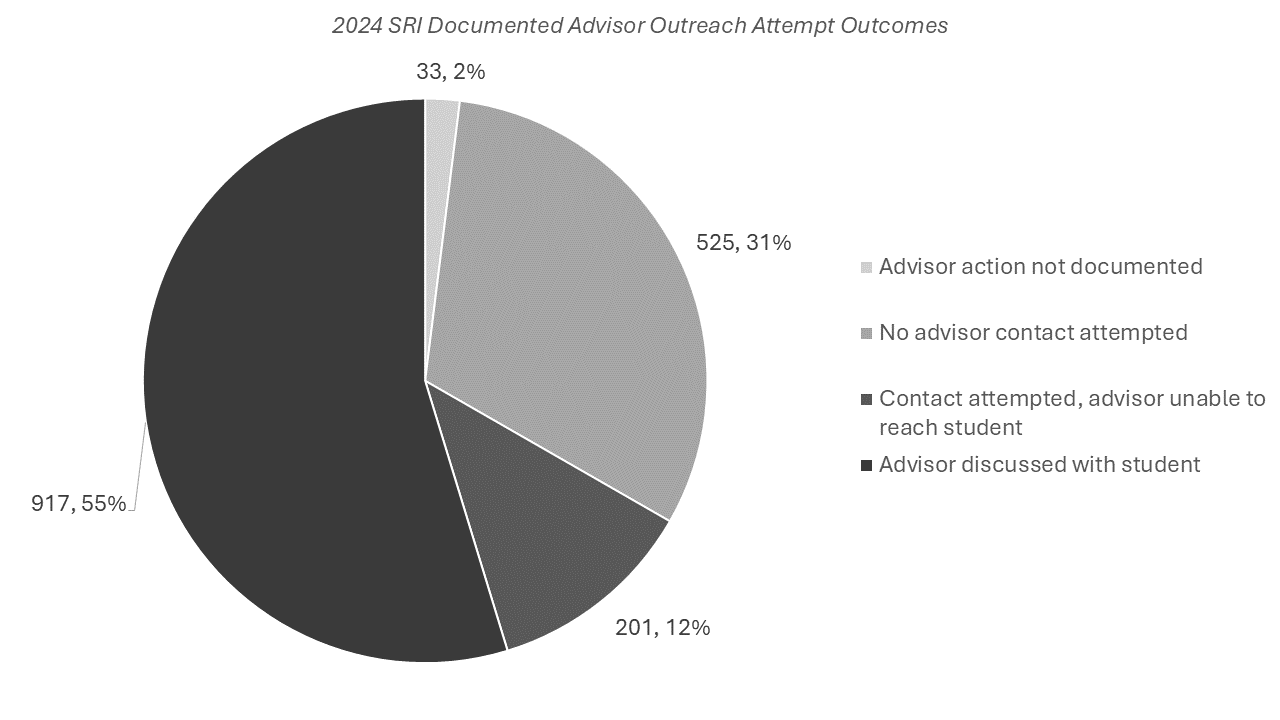Intended Outcomes:
The goal of this initiative is to leverage students' established relationship with an academic advisor to make students aware that their scholarship is at risk and identify options to meet requirements with summer enrollment. Advisors have the curricular knowledge to assist students in identifying ways to meet credit hour and/or GPA requirements to retain scholarships.
The Approach
- Data-Driven Identification: Financial Aid provides a list of students at risk, which advisors use to target interventions.
This early identification enables timely and effective outreach.
- Individualized Outreach and Advising: Advisors reach out to at-risk students to discuss summer enrollment options and strategies
to improve academic performance, ensuring they meet scholarship renewal requirements.
Through personalized outreach and advising, academic advisors help students retain
scholarships, stay on track with their degree progress, and continue their studies
at the university.
- Collaborative Support: Through coordinated efforts between advising and financial aid, the initiative ensures that students understand their academic standing and available options to retain their scholarships, when possible.
What Financial Aid can do |
What advisors can do |
|
|
What Financial Aid cannot do |
What advisors cannot do |
|
|
Impact of the SRI
Advisors successfully intervened with 55% of identified students in summer 2024. Additionally, 31% received no advisor contact, with some in this group having GPA and/or credit hours too low to retain scholarships through summer enrollment, and others mistakenly identified as at-risk. Some students (12%) could not be reached despite contact attempts and 2% had undocumented advisor actions, leaving their outcomes unclear.

The Scholarship Risk Initiative significantly improved scholarship retention and student
success, particularly for students who engaged with academic advisors. Of the 1,676
flagged students, those who discussed their situation with an advisor were much more
likely to take action, with 80% enrolling in summer coursework, 59% retaining their
scholarships, and 95% returning in the fall.

Review the full 2024 SRI Report here.
See how this initiative impacted first-generation students in 2024.